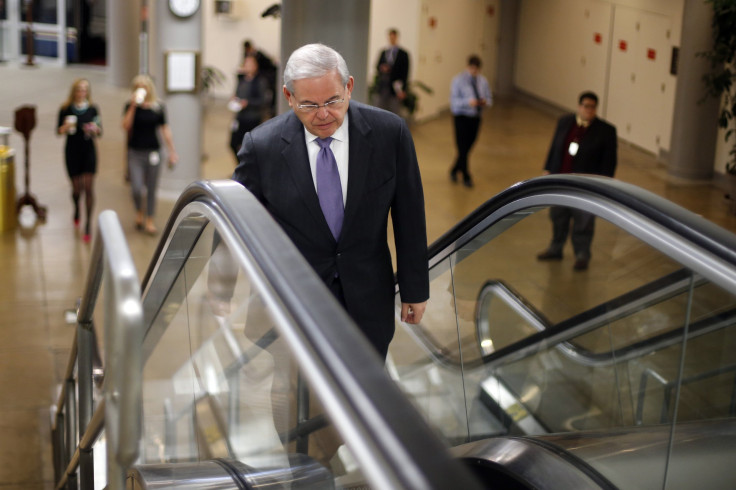Sen. Robert Menendez Corruption Case: Justice Dept To File Criminal Charge Against NJ Politician: Report

The U.S. Department of Justice plans to file criminal charges against U.S. Sen. Robert Menendez, D-N.J., for corruption after he allegedly received gifts and improperly used his Senate seat to promote the interests of and advocate on behalf of a donor and friend, Salomon Melgen.
U.S. Attorney General Eric Holder has agreed to let prosecutors proceed with filing charges, according to those who were familiar with the case, CNN reported. Menendez is in his second full term as senator after being appointed in 2006 and served as chairman of the Senate Foreign Relations Committee, where he is currently the ranking Democrat.
A federal grand jury in Miami began investigating the relationship between Menendez and Melgen, an eye doctor from Florida, in March 2013. In 2012, Menendez appeared to have tried to pressure a State Department official over a contract between the Dominican government and a company Melgen owned. In addition, after Medicare officials said Melgen overcharged the federal government for medical procedures he delivered, the senator also intervened on Melgen's behalf. Menendez has received flights in Melgen's private jet, among other returns. Melgen also contributed $700,000 to Senate Democrats, including Menendez, in 2012.
In 2010, Menendez flew as Melgen's guest to the Dominican Republic, but only in 2013, after the investigation was publicized, did Menendez reimburse Melgen $58,000 for the flights.
In late February, aides to Menendez refused to testify before a grand jury regarding Menendez's actions. Menendez has called the investigation "a smear campaign" against him and has already fought the government's investigation. His lawyers have tried to argue, according to documents accidentally posted by a court, that evidence and testimony requested from the aides was constitutionally protected in the Speech and Debate clause, which states in part that legislators cannot be questioned about their motivations for legislative acts.
© Copyright IBTimes 2025. All rights reserved.






















